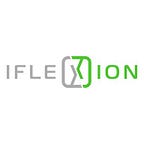Ready to go: FDA approvals in 2018 for diabetes and neurological disorders
FDA regulation serves as a constraining factor for some of the breakthrough technologies because no healthcare organization in the U.S. will be eager to start using a software solution without the government’s approval.
Thankfully, there are already changes underway in approval processes, at least for mobile apps, so Itransition expects a rising tide of all things medical in custom software development. But until then, healthcare innovations have to go the traditional route in getting clinical use permission.
In this article, we review the solutions in diabetes and neurological disorders that obtained FDA clearance in 2018 to target the possible advancements in clinical adoption among the cutting-edge technologies.
Diabetes-related approvals
According to WHO, 422 million people lived with diabetes in 2014, having to deal with limitations in lifestyle, activity, and nutrition. Last year’s FDA approvals brought in a promise to make patient lives easier by enabling more comprehensive blood glucose tracking and flexible treatment plan changes.
So far, Dexcom G6 is the only integrated CGM system with FDA approval. Dexcom G6 uses sensors instead of fingersticks to measure a patient’s blood glucose, transmitting the gathered information to a companion app and updating it every 5 minutes.
In 2018, Senseonics was finally granted FDA clearance for their implantable CGM system called Eversense after two years of anticipation. Instead of weekly self-insertions with traditional CGM systems, the small sensor is implanted into a patient’s upper arm by a health specialist. It can measure the blood sugar levels for up to 3 months until replacing.
The Medtronic company boasts a set of FDA approvals in continuous blood glucose tracking and insulin delivery systems. In particular, their CGM Guardian Connect solution predicts dangerous glucose levels with the help of a specific sensor and a transmitter.
Named Guardian Sensor 3, this device is now also cleared for upper arm wearing. Additionally, Guardian Sensor 3 is included in the MiniMed 670G, which is the hybrid closed-loop system for insulin delivery. In the summer of 2018, MiniMed was approved for patients with type 1 diabetes, starting from the age of seven.
Glooko creates a shared diabetes management environment, connecting patients with their care team via a unified mHealth app. They got approval for a proprietary MIDS system for processing blood glucose data of patients with type 2 diabetes and suggesting therapy changes. Health specialists can timely customize treatment for their patient and adjust the insulin dose on the fly.
Insulet Corporation gets regulatory approval and an opportunity to reach a wider market with their wearable Omnipod Dash system for insulin delivery. It is a tubeless and connected pump featuring a dedicated device for giving injections, monitoring vitals, reviewing the history and more. Omnipod Dash also syncs with the mobile app to help patients track and share the therapy course with their care team members.
Neurology-focused clearances
Neurological disorders hit hundreds of millions of people across the globe, affecting their speech and motor functions. These patients may not be able to live independently or freely communicate with other people due to their conditions. Technology advancements in this field can advance diagnostics to avoid medical errors, ensure patient safety and improve patient rehabilitation.
Embrace is an epilepsy management wearable from Empatica. It is already used in clinical trials for epileptic seizure-reducing medication and also got FDA approval in 2018. Using accelerometer, gyroscope, and sensors measuring temperature and electrodermal activity, the device can predict an upcoming seizure and alert a caregiver about it via a dedicated app. To get Embrace, patients with epilepsy will need a prescription from their neurologist.
MemoryMD, now part of Brain Scientific, obtained FDA approval for their EEG signal amplifier, called NeuroEEG, and NeuroCap, a 19-channel EEG headset. This combination is designed to facilitate diagnosis in emergency departments or ICUs.
Apart from its diabetes-related clearances, Medtronic also acquired regulatory approval for their proprietary DBS systems’ applications. These systems are implantable neurostimulators that send electrical impulses into specific brain areas to treat epilepsy, essential tremor, Parkinson’s disease, and other neurological disorders.
Granted clearance in June 2018, Drug Relief is the wearable device for auricular neurostimulation by DyAnsys. The device is designed to help individuals suffering from opioid abuse and experiencing withdrawal symptoms. Drug Relief sends electrical pulses into a user’s ear and stimulates specific auricular nerves, mitigating pain and discomfort.
Cleared in summer, MindMotion Go by MindMaze is an innovative platform for engaging neurorehabilitation based on gamified experiences and motion capture. Available for different types of impairments, the platform offers a range of game-like exercises that encourage activity in a patient’s spinal cord to restore motor functions in hands and legs.
Sprint PNS system from SPR Therapeutics got approval for the wearable technology offering medication-less pain relief. The device stimulates nerves via a thin wire in the patient’s skin, soothing pain. This solution is created as an alternative to opioids for individuals with acute or chronic pain in the back or legs.
iSchemaView got cleared with Rapid CTA. This 3D medical imaging device offers fast CTA image processing, mapping the brain blood vessels in color and volume. The doctors can manipulate the scan, rotating it and grasping the patient’s diagnosis right away.
FDA secures expansion of innovations
The empowering idea, sleek design, and impeccable performance are key to health technology validation. However, it may be not enough for the solution’s clinical adoption and thorough acknowledgment. FDA can say the last word to give the game-changing healthcare technology a boost, and we are impressed by the 2018’s approvals in diabetes and neurological conditions realms.
With the opportunity to timely alert the caregivers about an upcoming seizure, monitor blood glucose levels without finger pricks, offer patients gamified rehabilitation, and enable physicians to alter the insulin dosage flexibly, FDA ensured faster adoption of more engaging and less painful ways to diagnose and treat chronic patients.
